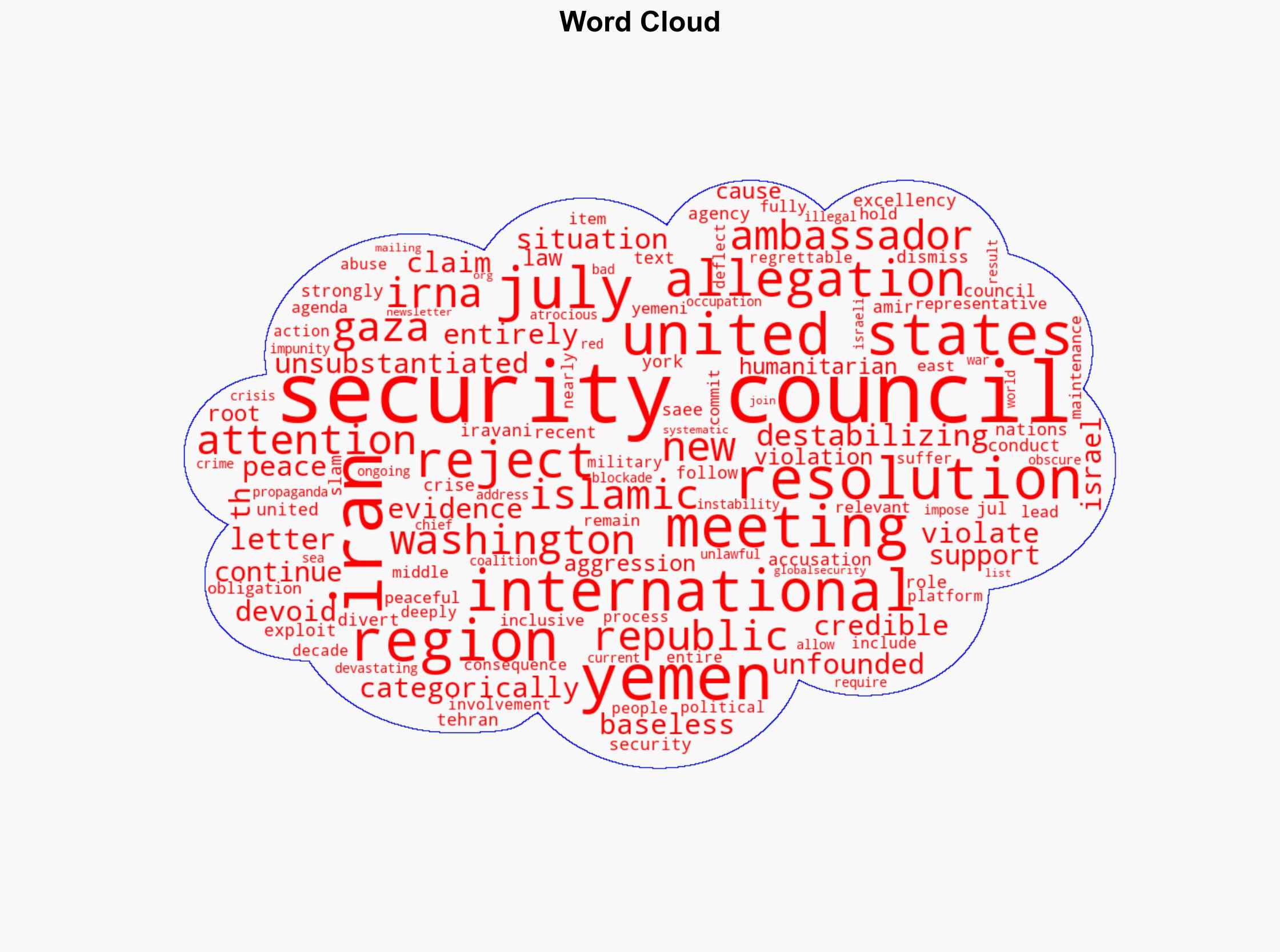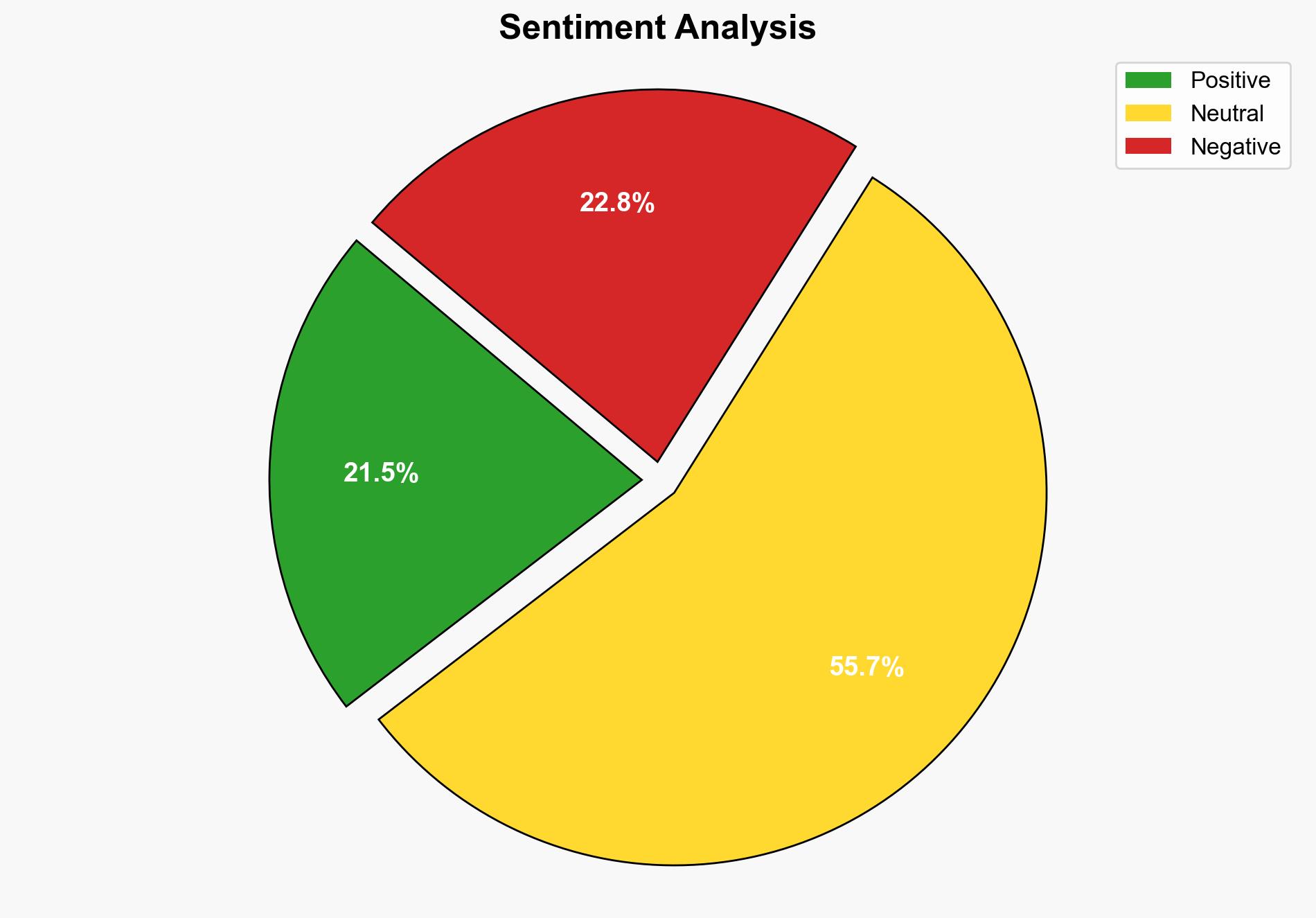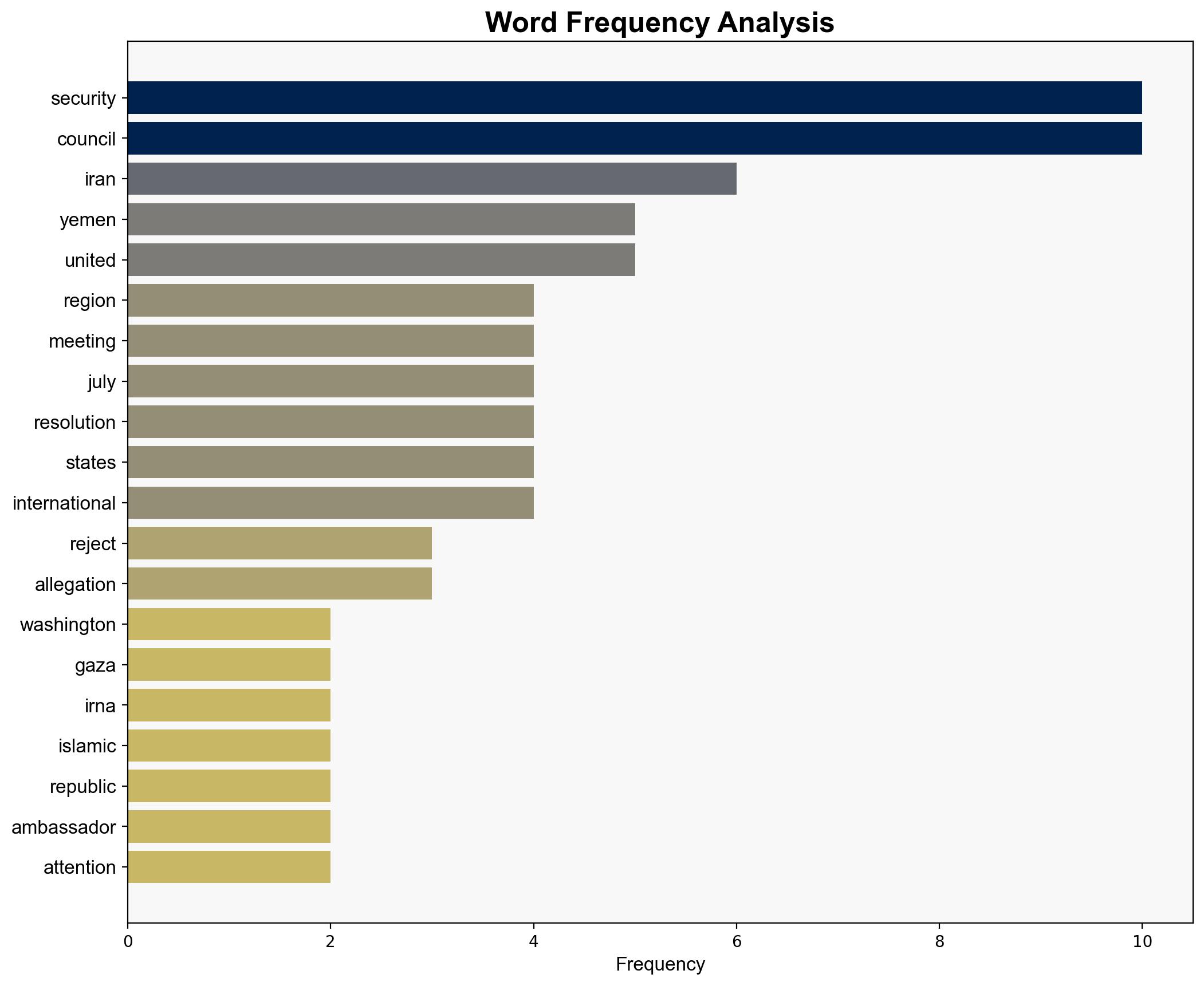Iran rejects US accusations at UN slams Washington’s role in Yemen and Gaza crises – Globalsecurity.org
Published on: 2025-07-18
Intelligence Report: Iran Rejects US Accusations at UN, Criticizes Washington’s Role in Yemen and Gaza Crises – Globalsecurity.org
1. BLUF (Bottom Line Up Front)
Iran has categorically rejected US allegations at the United Nations, accusing Washington of exploiting the Security Council to divert attention from its own destabilizing actions in the Middle East, particularly in Yemen and Gaza. This report analyzes the strategic implications of these accusations and the potential impact on regional stability.
2. Detailed Analysis
The following structured analytic techniques have been applied to ensure methodological consistency:
Causal Layered Analysis (CLA)
– **Surface Events**: Iran’s public rejection of US accusations at the UN.
– **Systemic Structures**: US military involvement in the Middle East and its support for Israel.
– **Worldviews**: Iran perceives US actions as aggressive and destabilizing.
– **Myths**: The narrative of US hegemony and interference in regional affairs.
Cross-Impact Simulation
– **Regional Dynamics**: Increased tensions between Iran and the US could exacerbate conflicts in Yemen and Gaza.
– **Economic Dependencies**: Potential impacts on oil markets and regional trade routes.
Scenario Generation
– **Best Case**: Diplomatic engagement leads to de-escalation and a renewed focus on peace processes in Yemen and Gaza.
– **Worst Case**: Escalation of military conflicts involving regional and global powers.
– **Most Likely**: Continued diplomatic standoff with sporadic escalations in rhetoric and proxy conflicts.
3. Implications and Strategic Risks
– **Political**: Heightened diplomatic tensions could lead to further polarization within the UN Security Council.
– **Military**: Risk of increased military engagements in Yemen and Gaza, potentially involving US and Iranian forces.
– **Economic**: Disruption of trade routes and oil supply chains in the Red Sea and surrounding regions.
4. Recommendations and Outlook
- Encourage diplomatic dialogue between the US and Iran to address mutual concerns and reduce regional tensions.
- Support initiatives for a Yemeni-led political process to foster peace and stability.
- Monitor developments in Gaza and advocate for humanitarian assistance to mitigate the crisis.
5. Key Individuals and Entities
– Amir Saeed Iravani
6. Thematic Tags
national security threats, regional stability, Middle East conflicts, diplomatic relations





